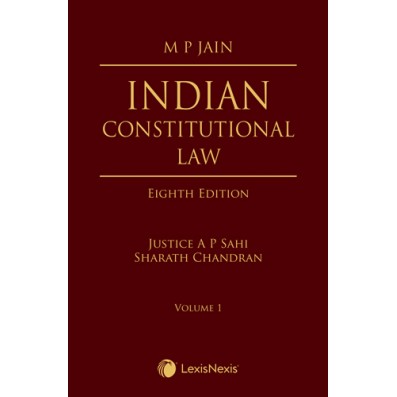Indian Constitutional Law
Availability :
In Stock
₹ 5,585.70
M.R.P.:₹ 6495
You
Save: ₹909.30 (14.00% OFF)
(Inclusive
of all taxes)
Delivery:
₹ 30.00 Delivery charge
Author:
M P Jain
Publisher:
Lexis Nexis
Edition:
8th
ISBN-13:
9789395116237
Publishing Year:
2022-01-01
No. of Pages:
2530
Language:
English
Book Binding:
Hardcover











